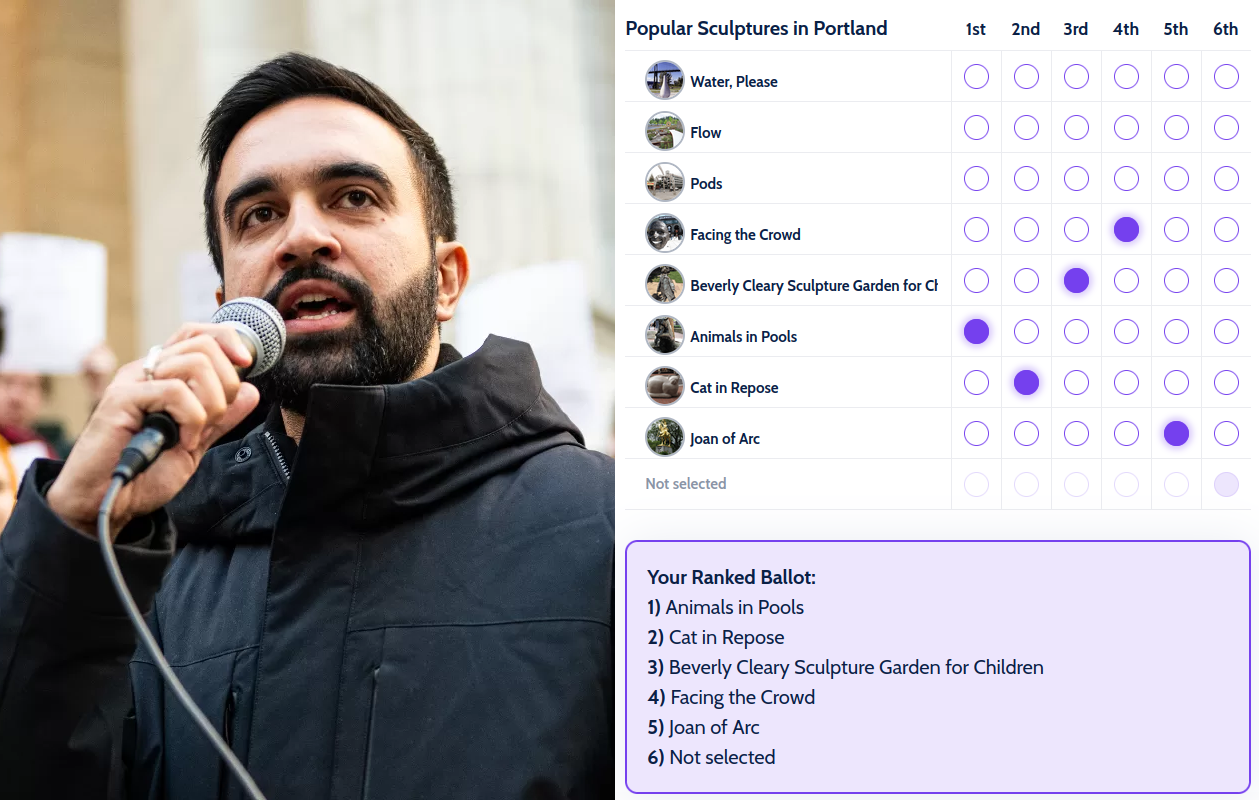ranked choice, NYC and Portland

I'm sure I was not alone the other night as a Portlander excitedly watching the NYC mayoral primary results. the headline is historic: DSA-supported candidate wins primary over corrupt establishment scion using broad affordability platform! but I think the real story is the campaign that would have been not just unthinkable but impossible a few short years ago, with direct implications here on the West coast.
ranked choice was meant to reduce strategic voting. instead of wondering whether Lefty Lucy could somehow achieve second place, or whether we have to settle for Competent Curtis in order to stop Reactionary Ricardo, we would get to express our preferences directly, trying to elect a more ideologically representative individual (or just prevent Sarah Palin from going to Congress, depending on the jurisdiction).
I was curious whether it could also change how we campaign. in Portland we saw some candidates identify themselves with others in suggestions of forming blocs on the council. but NYC took it to anogther level. most notably, Brad Lander and Zohran Mamdani endorsed each other, and did a number of joint campaign appearances. they did a great job sending a message about what politics ought to be about: coming together to fix problems that are too hard to fix on our own. outside orgs (and creative affiliated individuals) spread the word about how to vote an anti-Cuomo ballot. there followed a flurry of lateral endorsements, sometimes mutual and sometimes hilariously not. and voters understood what was happening, for the most part! they could tell what was about personalities and what was about policies, and because there was an abundance of information, lots of people are happy with the result.
A beautiful afternoon to bike with @bradlander pic.twitter.com/bmBYyfOx4S
— Zohran Kwame Mamdani (@ZohranKMamdani) June 20, 2025
by actually campaigning together, and being able to teach their supporters how to defeat their common enemy, they created a handoff from the losing campaigns to the winning one. instead of the Democratic nominee having to prove herself anew to important interest groups who may not have endorsed her or anyone in the primary, everybody can continue the same campaign without having to nurse hurt feelings. there is lots of evidence this handoff is happening:
Here's a fun thing that a top donor to Andrew Cuomo's super PAC just told me. pic.twitter.com/DhI8kvyvvz
— Teddy Schleifer (@teddyschleifer) June 25, 2025
this structure disempowers the Democratic party (the formal organization) and empowers other political organizations like unions, think tanks, issue advocacy orgs, weird rich dudes with magazines, and especially including non-winning campaigns. the DSA is probably going to be the biggest beneficiary, but look for others to sense the political opportunity at hand, especially astroturf corporate centrists.
nothing has redeemed my faith in politics like seeing like 30 candidates forced to actually campaign in detail last year and having voters respond positively; the NYC election this week is more of the same. the more we see candidates say things like "here are the other candidates I think are like me and why," and other candidates talking about why they agree, the better off our city is going to be. I get the impression that US politics used to involve a lot more coalition-building than it has this century, and I'm encouraged to see the trend start to reverse.
